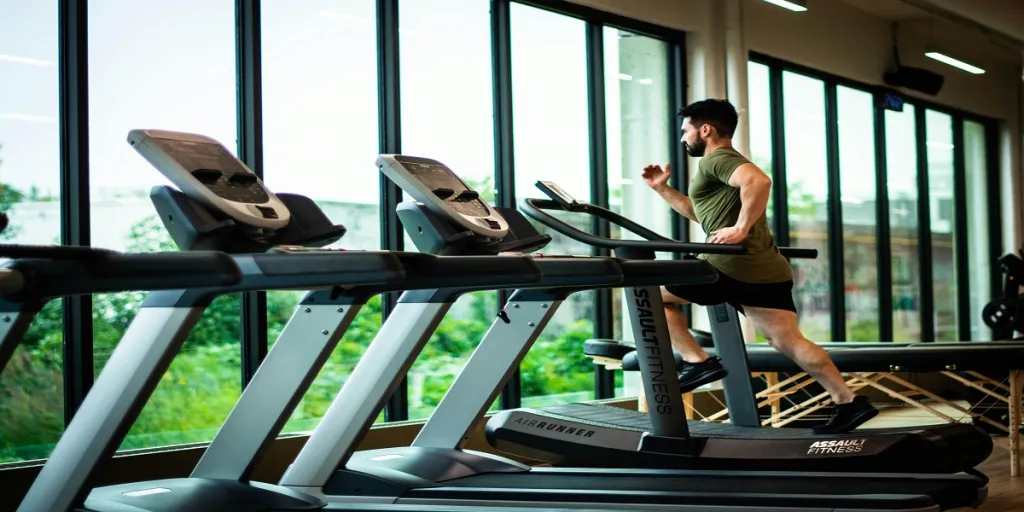Having the right shot put equipment is essential to both seasoned athletes and complete beginners of the sport. Everything from which throwing shoes to the shot put and throwing circle to buy will be weighed up by consumers looking to perfect their game. Read on to learn more about the most sought-after varieties of shot put equipment on the market.
Table of Contents
Global market value of shot put equipment
Essential shot put equipment
Summary
Global market value of shot put equipment

Within the realm of track and field, shot put is one of the most popular disciplines. And while it might not have the large mainstream appeal of other sports like football, the raw power and technique that athletes require to throw the shot put long distances still manages to draw crowds, especially during the Olympics.

Between 2024 and 2031, the global market value of shot put equipment is expected to increase by a compound annual growth rate (CAGR) of 9.8%. This is in part thanks to more track and field events being televised throughout the year and the hosting of the 2024 Paris Olympics, meaning shot put will be watched across the globe.
Essential shot put equipment

Shot put does not require a significant amount of equipment. However, it does necessitate a specific technique and raw power from the athlete to effectively throw the heavy metal ball a long distance. This individual sport is very popular in track and field events as a whole but can be equally enjoyed by individuals not at a professional level.

According to Google Ads, “shot put equipment” has an average monthly search volume of 720. The majority of searches occur in March and November, with 1,300 searches each. This is followed by 880 searches each in April and October.
Google Ads also shows that the most searched for pieces of shot put equipment are “shot put ball” with 14,800 monthly searches, “throwing shoes” with 12,100 searches, and “shot put circle” with 880 searches.
Below, we’ll cover more different types of shot put equipment and their specific uses.
Shot put

Shot puts come in various sizes and weight categories. For women, sizes range from 95mm to 110mm in diameter, and the standard weight is 8.8lbs (4kg). Male athletes use a slightly larger shot, ranging from 110mm to 130mm in diameter, with a weight of around 16lbs (7.26kg).
It’s important to note that these are average diameters and weights based on adult athletes, and are larger than those used by younger athletes and children.
Shot puts are mostly made out of metal thanks to their durability and weight, with steel and brass being popular options.

Shot puts often have a smooth surface, so athletes often chalk their hands to enhance their grip. Some shot puts offer a textured grip though, which helps to prevent slippage.
As a whole, shot put doesn’t require much equipment and is quite budget-friendly compared to other sports, such as tennis. Entry-level shot put balls can range from USD 20-50 whereas high-end versions can reach USD 200 and up, depending on material and quality.
Throwing shoes

One of the most important pieces of shot put equipment is the throwing shoes. These are worn specifically during competitions and training to provide traction and stability within the throwing circle. They can be worn on concrete or synthetic track surfaces to great effect, enabling the athlete to generate maximum power and control while throwing.
In order to provide support, the throwing shoe’s upper is made of a durable material such as synthetic leather or mesh, with other areas reinforced for added stability. The outsole is usually made of rubber or another high-traction material for grip. To ensure a comfortable fit, most will come with a strap or lace closure system.
Entry-level shoes cost as little as USD 50, whereas competition-level throwing shoes can cost USD 200 or more, depending on the model. Finally, although these are specialized shoes, their sized the same as regular shoes.
Shot put circle

The shot put circle, also known as the throwing circle, is the standardized area from which athletes throw the shot put. They can be installed in a field or on a track and is commonly made of concrete to offer a stable and durable surface.
According to international regulations, throwing circles have a standard diameter of 2.135 (7ft), but this can vary based on the competition level or the governing body. As throwing circles are solidly built, they’re typically very heavy and aren’t meant to be moved from their place of installation. However, more mobile practice circles can also be sourced.

A throwing circle will come installed with a toeboard can at its front edge. This provides the athlete with a clear endpoint for their throws and helps them to stay within the circle’s boundary.
Due to the difference in materials as well as installation and labor costs, throwing circles vary in price between a few hundred dollars to thousands of dollars.
Summary

Shot put is a popular sport within the track and field discipline that requires very little equipment to participate in. The main components of the sport are the shot put, throwing shoes, and the throwing circle. Athletes who perform at a professional level will be seeking high-quality equipment to bring their performance to the next level, but it can also benefit businesses to stock items for beginners and even children.
For more tips on trending products in the market, don’t forget to subscribe to the Chovm.com Reads.




